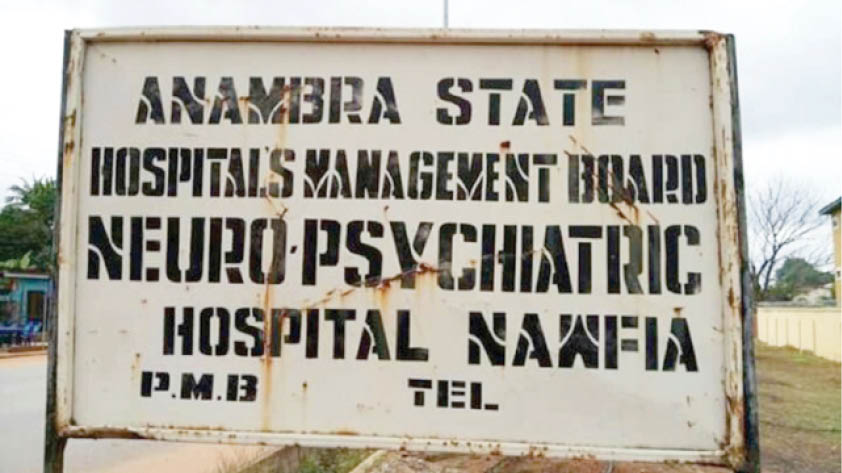Drug abuse: Psychiatric patients flock hospitals in Calabar, Awka
Findings revealed that as at press time, 93 drug-related patients were accommodated at the seven..

Anambra State Neuro Psychiatrist Hospital Nawfia
The principal psychologist at the Federal Neuro-Psychiatric Hospital, Calabar, Dr Eyo Asuquo, has disclosed that there is an increasing number of psychiatric patients arriving at their facility in recent times.
In an interview, he attributed the reason to increasing abuse of hard drugs, such as Tramadol, Nicotine, Cannabis, Indian hemp, as well as high intake of alcohol by victims.
- $1.2m NNPC ‘bribe’ used to finance Jonathan, Buhari elections – Report
- Bandits impose tax on Katsina farmers
Findings revealed that as at press time, 93 drug-related patients were accommodated at the seven wards of the hospital.
Asuquo said, “As a result of the increase in the number of patients, an emergency ward was created to receive them. We have seven wards that accommodate different levels of psychiatric disorders. We have a multi-disciplinary approach to their treatment.”
He said they took time to attend to individual cases and discharge those whose conditions got better than when they were admitted.
He also said the rate of recovery differed from one patient to another, depending on the degree of disorder.
He expressed gratitude to the federal government for restoring and re-equipping the facility better than when hoodlums destroyed it during the #ENDSARS protest last October.
A staff member of the hospital, who did not want his name mentioned, said patients were brought in from different parts of the state and other places.
“Presently, the facility is functioning as it should. Patients are brought in very regularly from parts of the state and outside. Our experts attend to them every working day, except Wednesday,” he disclosed.
Another member of staff said they only received 10 per cent instead of the 40 per cent hazard allowance promised them by the government.
In Anambra State, the Neuropsychiatric Hospital, Nawfia, Awka South, has many patients.
Our correspondent who visited the hospital observed that as early as 8.30am, doctors were already in their consulting offices attending to patients.
Speaking with our correspondent, a patient, who identified himself as Mike, thanked the hospital management for the care and treatment he received.
He said the journey to the facility was a long one that he did not want to share with anybody.
One of his relatives, Uche Daniel said, “We thank God for healing him. We hope he would not repeat the cause of the problem.”
One of the doctors who spoke on condition of anonymity said the hospital received an average of five patients every week.
He said most of the patients were induced by hard drugs or the popular Indian hemp, adding that the state government should pay special attention to the hospital.
On the challenges of the hospital, he said it lacked adequate funding and manpower like any other public institution in the country.
